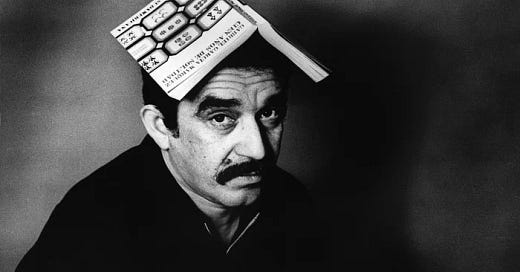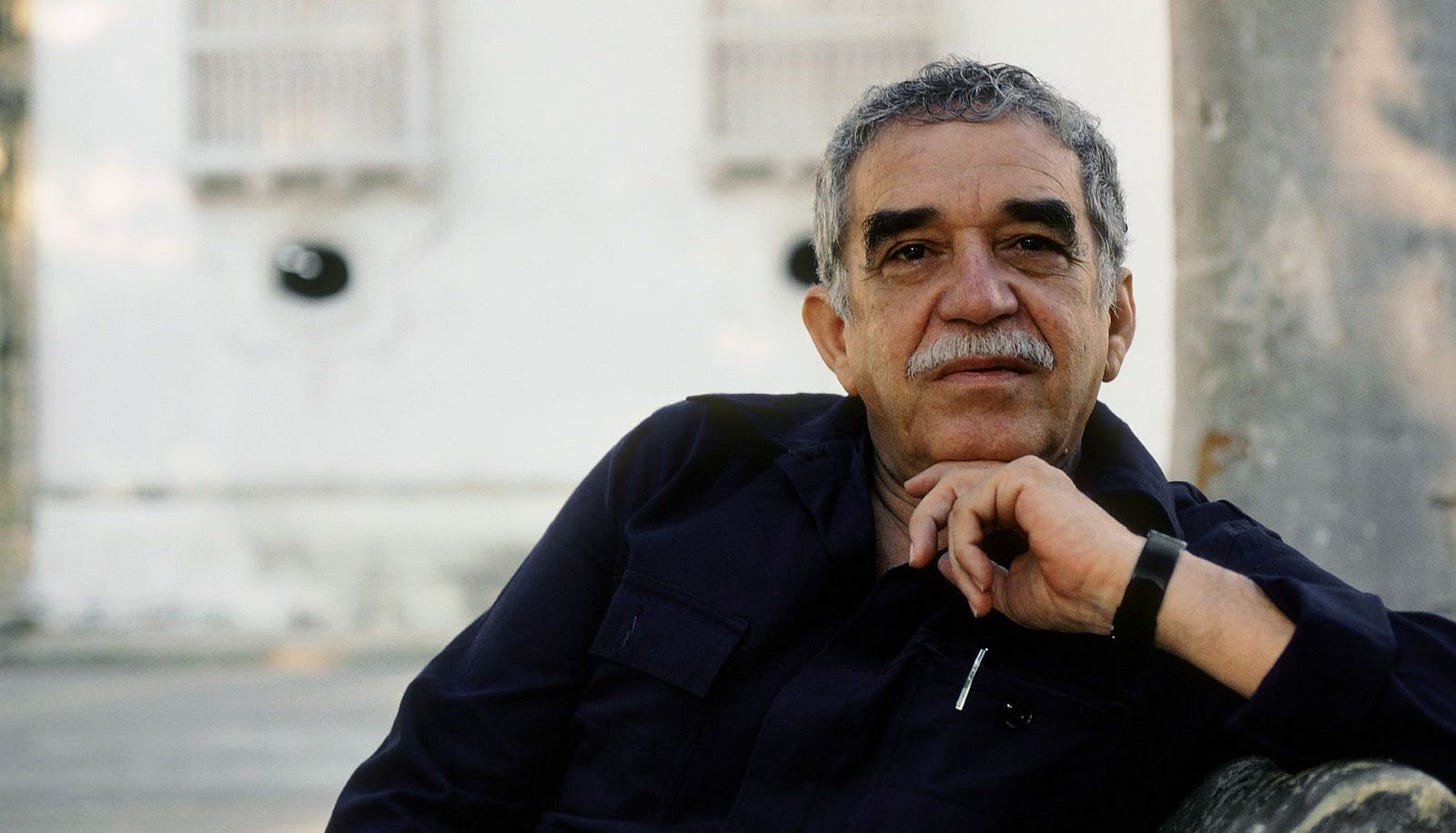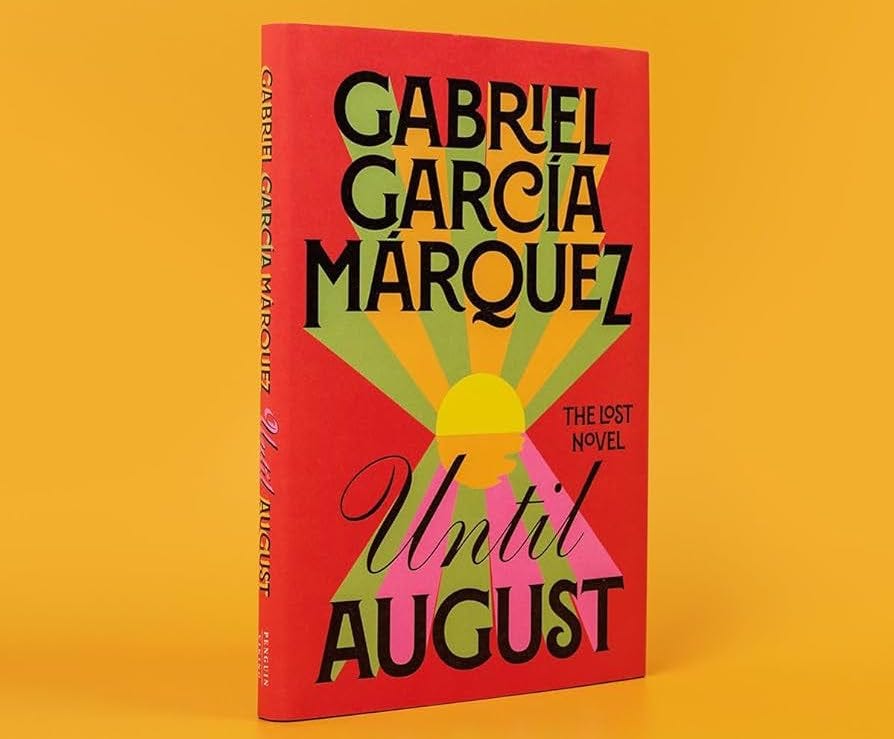“Fiction was invented the day Jonah arrived home and told his wife that he was three days late because he had been swallowed by a whale." – Gabriel García Márquez
Another week, another newsletter packed with exciting news and stories about literature and the people behind it.
International Booker Prize Longlist
The International Booker Prize Longlist was announced on Monday. What do we think of the selections? Once we get down to the shortlist (coming out in early April), I’ll do a deeper dive on some of the picks.
Established in 2005, The International Booker Prize is the sister prize of the Booker Prize, and the two operate roughly in parallel.
The Booker celebrates outstanding works of fiction in the English language. Originally open only to authors from the UK, Ireland, and the Commonwealth, it has since expanded to include all English-language authors. Notable winners include Salman Rushdie, Margaret Atwood, and Kazuo Ishiguro.
The International Booker Prize (as one might expect), is awarded to a work of fiction originally released in a language other than English, which has subsequently been translated and published in the UK or Ireland.
The longlist for the Booker Prize will be announced in July, with the shortlist following in September. I’ll keep you updated as and when more information comes out about these releases.
Gabriel Garcia Marquez
Last Wednesday, March 6th, was the birthday of Gabriel García Márquez. Born in 1927 in Aracataca, Colombia, García Márquez was a pioneer of magical realism, and is best known for blending fantastical elements into literary, character-driven narratives. His most famous novel, One Hundred Years of Solitude, published in 1967, is often considered his masterpiece and a landmark in world literature. Set in the fictional town of Macondo, the novel chronicles the multi-generational saga of the Buendía family, exploring questions of love, politics, and the cyclical nature of time. The book garnered international acclaim, and García Márquez would eventually go on to win the Nobel Prize in Literature in 1982 for his body of work. In addition to his novels, García Márquez was also a prolific journalist and essayist, using his writing to explore political and social issues in Latin America. He was deeply engaged in the region's cultural and political landscape, advocating for social justice and human rights. He gave an interview with the Paris Review in 1981 which you can read here; it’s an absolute classic.
You may have seen in the news that his last book, Until August, was published just last week – to much controversy. García Márquez died in 2014, but had spent the previous decade working on the novel, going through at least five drafts of the text. Although it was largely complete, on his death, unhappy with the work and unwilling to see it released, he made the difficult decision to destroy it. Or, at least, that was his intention.
In reality, the manuscript wasn’t destroyed. Since 2014, its 769 pages have been tucked away in archives at the Harry Ransom Center at the University of Texas (you can search through their collections here). Now, García Márquez’s sons have decided to release the novel to the public.
The story follows Ana Magdalena Bach, a middle-aged woman who, each year as she makes a pilgrimage to her mother’s grave on a Caribbean island, takes a local lover – briefly finding freedom away from the pressures of her life as wife and mother.
The decision to publish the book raises fascinating questions about authors’ estates, and posthumous autonomy. It’s hard to know the motivations of the García Márquez boys here in releasing the work. Is it a merciless cash-grab or a benevolent attempt to bring a beloved literary giant’s (and a beloved father’s) work into the world? The waters are muddied by the fact that García Márquez was suffering from quite severe dementia at the time of his death, which, his sons argue, impacted his decision to shelve the text. (That being said, the New York Times Book Review’s assessment of the work falls more in line with García Márquez’s own beliefs – labelling it an ‘unsatisfying goodbye’ from the literary giant.). On that note, in next week’s edition I’m going to have a look into a selection of the most famously satisfying (or unsatisfying) posthumous releases, so stay tuned for that.
Publishing Until August directly contravenes García Márquez’s wishes, which I think is important to reckon with. How much control does someone have over their body of work after their death, and are an author’s wishes in any way legally enforceable? I tend to believe the motivations behind the choice to release the book don’t matter as much as the decision itself, but I’d be interested to hear from you. What do you think about the Until August debacle? Leave a comment at the end of the newsletter and share your thoughts.
As a little post-script, I wanted to tell you quickly about one of the funniest ‘literary feud’ stories I’ve come across – involving Gabriel García Márquez, Mario Vargas Llosa, and a punch square in the jaw. (If you’re in need of an additional helping of drama, here’s a list of 24 other literary feuds).
Keep reading with a 7-day free trial
Subscribe to Lit With Charles to keep reading this post and get 7 days of free access to the full post archives.






